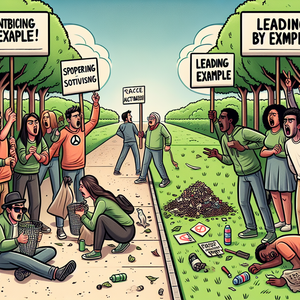The Role of Solar Panel Installers in Climate Action

Solar panel installers are at the forefront of reducing reliance on fossil fuels. By installing solar panels, they help homeowners and businesses harness clean, renewable energy from the sun. According to the U.S. Department of Energy, solar energy can reduce greenhouse gas emissions by nearly 90% compared to coal. Each solar panel installed represents a step toward a more sustainable energy future, showcasing the tangible impact installers have on mitigating climate change. Supporting Example: A study from the National Renewable Energy Laboratory found that large-scale solar installations can displace millions of tons of carbon dioxide emissions annually. This underscores the vital role of installers in the process of transitioning towards cleaner energy solutions.
Promoting Energy Independence
Solar panel installation empowers individuals and communities to take control of their energy sources. By transitioning to solar energy, homeowners can reduce their dependence on traditional power grids, which are often reliant on fossil fuels. This shift not only contributes to personal energy independence but also fosters resilience in local communities against fluctuations in energy prices and supply disruptions. Supporting Example: In areas like California, solar installations have led to significant savings on electricity bills, demonstrating both the financial and environmental benefits of renewable energy. Such savings allow individuals and communities to redirect financial resources towards other sustainable practices.
Educating and Advocating for Renewable Energy
Solar panel installers do more than just physically install panels; they also serve as advocates for renewable energy. Many installers take on the role of educators, informing clients about the benefits of solar technology, available incentives, and the long-term savings associated with solar energy. This grassroots advocacy helps to dispel myths about solar energy and encourages broader adoption. Supporting Example: Installers often participate in community outreach programs, providing workshops and information sessions that empower residents to make informed decisions about their energy sources. Such initiatives have been shown to increase solar adoption rates within communities, showcasing the installers' role as advocates for a sustainable future.
Contributing to a Growing Industry and Job Creation
The demand for solar energy is rapidly increasing, leading to significant job creation within the installation sector. As more individuals and businesses seek to reduce their carbon footprints, the need for skilled solar panel installers continues to grow. This trend not only supports the economy but also helps combat climate change by increasing the capacity for renewable energy production. Supporting Example: According to the Solar Foundation’s National Solar Jobs Census, the solar industry added over 250,000 jobs in the U.S. since 2010, with installation roles representing a substantial proportion of this growth. Such job creation is crucial for fostering a sustainable economy and environment, providing opportunities for individuals across various backgrounds to engage in meaningful work.
The role of solar panel installers in climate action cannot be overstated. Their work directly impacts carbon emissions, promotes energy independence, educates communities, and contributes to a rapidly growing industry. As they install solar panels, they are not just technicians; they are champions of a sustainable future. In a world increasingly aware of the urgency of climate action, solar panel installers embody hope and progress, demonstrating that every installation is a step toward a cleaner, more resilient planet. By recognizing and supporting their invaluable contributions, we can all participate in the transition to renewable energy and a better future for generations to come. The career of a solar panel installer is not only a pathway to personal and professional growth but also a vital component of the global effort to combat climate change. As the demand for solar energy continues to rise, the opportunities within this field expand, inviting individuals from all walks of life to join in the pursuit of a sustainable future.
Solar Energy Technician
Sunrun, Vivint Solar, local renewable energy firms
Core Responsibilities
Conduct site assessments to determine the best solar system configuration for client needs.
Install, maintain, and repair solar energy systems, including photovoltaic panels and battery storage.
Troubleshoot system malfunctions and ensure compliance with safety standards and regulations.
Required Skills
Proficiency in electrical systems and understanding of energy management systems.
Strong problem-solving skills and the ability to work in various weather conditions.
Certification through organizations such as NABCEP (North American Board of Certified Energy Practitioners) is often preferred.
Solar Project Manager
First Solar, Canadian Solar, project management firms specializing in renewable energy
Core Responsibilities
Oversee solar installation projects from conception through completion, managing timelines and budget constraints.
Coordinate between clients, engineering teams, and installation crews to ensure project specifications are met.
Monitor project progress and address any issues that may arise during the installation process.
Required Skills
Strong leadership and communication skills to manage diverse teams and client expectations.
Experience with project management software and methodologies (e.g., Agile, PMP certification).
Understanding of solar energy regulations and permitting processes.
Renewable Energy Sales Consultant
Momentum Solar, Palmetto, regional solar providers
Core Responsibilities
Educate potential customers on the benefits of solar energy and available financing options.
Conduct energy audits and assessments to determine customer needs and recommend appropriate solar solutions.
Develop and maintain relationships with clients to foster repeat business and referrals.
Required Skills
Excellent sales and negotiation skills with a focus on customer service.
Knowledge of solar technologies, incentives, and financing options.
Ability to work independently and manage a sales territory effectively.
Solar Energy System Designer
Engineering firms, solar manufacturing companies, design consultancies
Core Responsibilities
Create detailed designs and layouts for solar energy systems based on client specifications and site assessments.
Utilize design software (such as AutoCAD or PVsyst) to model energy production and system efficiency.
Collaborate with engineers and installers to ensure designs meet safety and regulatory standards.
Required Skills
Strong technical skills in solar technology and system design principles.
Proficiency in design software and a good understanding of electrical engineering concepts.
Creative problem-solving skills to optimize system performance while considering site constraints.
Solar Energy Policy Analyst
Solar Energy Industries Association (SEIA), non-profit organizations, government agencies
Core Responsibilities
Research and analyze policies related to solar energy and renewable resources at local, state, and federal levels.
Collaborate with stakeholders to develop policy recommendations that promote solar energy adoption.
Monitor legislative developments and advocate for policies that support the growth of the solar industry.
Required Skills
Strong analytical and research skills with the ability to interpret data and trends in renewable energy.
Excellent written and verbal communication skills for policy advocacy and public outreach.
Familiarity with environmental regulations and renewable energy incentives.


